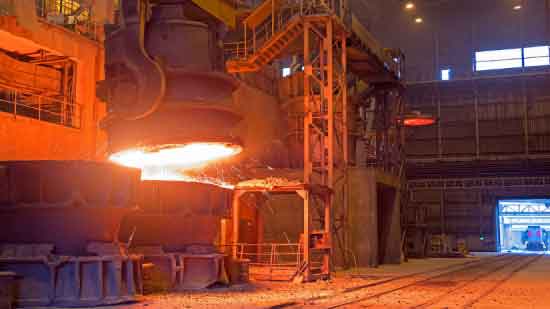
Steel sand casting is widely used in the production of heavy machinery components due to its ability to provide strength, durability, and reliability. Heavy machinery, such as construction equipment, mining machinery, agricultural machinery, and industrial machinery, often requires robust and high-performance components that can withstand demanding operating conditions. Here are some reasons why steel sand casting is well-suited for heavy machinery manufacturing:
- Strength and Durability: Steel is renowned for its high strength and durability, making it an ideal material for heavy machinery applications. Steel sand casting enables the production of robust components that can withstand heavy loads, high pressures, and harsh environments. The casting process allows for the creation of complex shapes and geometries without compromising strength, ensuring reliable performance in demanding conditions.
- Customization and Flexibility: Heavy machinery often requires customized components to meet specific design and performance requirements. Steel sand casting offers flexibility in creating components of various sizes, shapes, and complexities. The sand molds can be easily modified to accommodate specific design features and integration with other machinery parts, enabling a high level of customization for heavy machinery applications.
- Cost-Effectiveness: Steel sand casting provides a cost-effective solution for manufacturing heavy machinery components, especially for medium to large production volumes. The scalability of the casting process allows for efficient production and cost optimization, making it economically viable for heavy machinery manufacturers.
- Complex Geometry: Heavy machinery components often have intricate designs with complex shapes, internal cavities, and challenging features. Steel sand casting excels in producing such components, including those with undercuts, thin walls, and integrated features. The sand molds can accurately replicate the intricate details, ensuring the dimensional accuracy and integrity of the final castings.
- Wear Resistance and Heat Resistance: Heavy machinery components frequently encounter wear, friction, and high temperatures. Steel sand casting allows for the use of various steel alloys with excellent wear resistance, heat resistance, and other desired properties. By selecting the appropriate steel alloy and heat treatment process, components can be manufactured to withstand abrasive environments, high temperatures, and prolonged heavy-duty operations.
- Compatibility with Welding and Machining: Steel sand castings are compatible with subsequent welding and machining processes. This allows for the joining of multiple components and the machining of critical surfaces to achieve precise tolerances. The versatility of steel sand casting ensures compatibility with subsequent manufacturing operations, facilitating the integration of cast components into the overall heavy machinery assembly.
- Quality and Reliability: Steel sand casting undergoes rigorous quality control measures to ensure the reliability and performance of the cast components. Non-destructive testing, such as ultrasonic testing and X-ray examination, helps identify any internal defects or discontinuities that could compromise the structural integrity. Mechanical testing verifies the strength, hardness, and other mechanical properties, ensuring the components meet the required specifications and performance standards.
Steel sand casting provides heavy machinery manufacturers with the strength, reliability, and customization needed for their components. The ability to produce complex shapes, cost-effective production, and compatibility with subsequent manufacturing processes make steel sand casting an ideal choice for heavy machinery applications.
